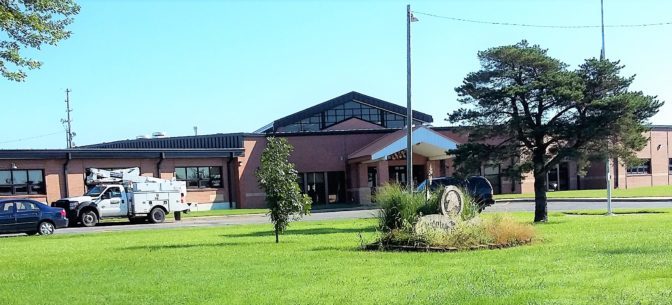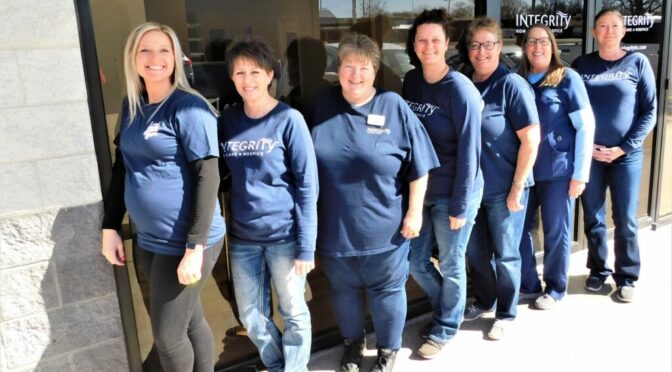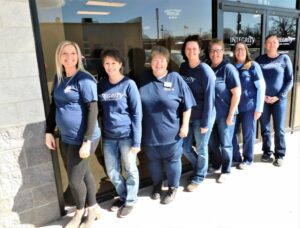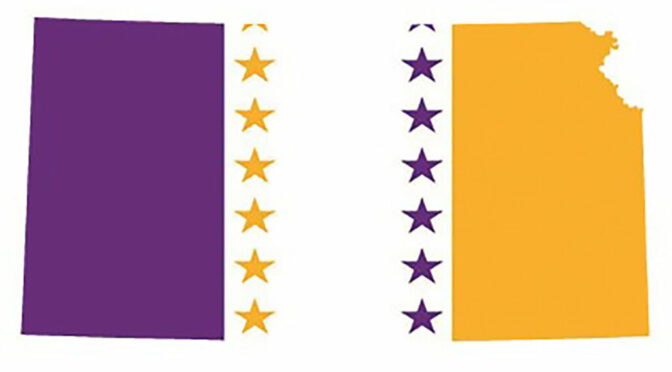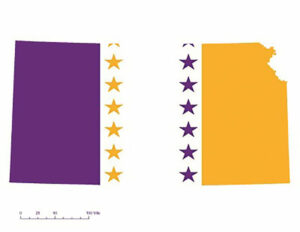No Confirmed COVID-19 Cases in Kansas, Kelly ensures state is ready
Governor Kelly, Secretary Norman, General Tafanelli urge preparedness
Governor Laura Kelly, along with Kansas Department of Health and Environment (KDHE) Secretary Dr. Lee Norman and Kansas Adjutant General Lee Tafanelli, director of the Kansas Division of Emergency Management (KDEM), today outlined a robust, comprehensive preparedness plan for COVID-19, also known as novel coronavirus.
“There are no confirmed cases in Kansas, but we are prepared,” Kelly said. “Currently, in Kansas, the overall risk of the virus is low, but that does not mean we can rest easy. We take this situation seriously. We can and will remain ready to respond swiftly and effectively, should the virus spread to Kansas.”
The Kelly administration is working closely with federal, state and local partners to maintain awareness of national and international trends related to the virus. KDHE currently is working on Kansas-specific guidance, based on information from the Centers for Disease Control and Prevention (CDC), to help local communities continue their preparedness efforts.
Under Governor Kelly’s direction, KDHE and KDEM are:
- in constant communication with local hospitals and health departments, coordinating with local, state and federal public health partners;
- preparing for emergency management situations on a regular basis, with staff who have decades of experience in developing responses and preventative measures for any situation;
- continuing to work with federal, state and local partners to maintain awareness of national and international COVID-19 trends and strategies.
“The health and safety of every Kansan is our top priority and we are utilizing every tool at our disposal to continue monitoring the situation and ensure that we are ready to respond should that be necessary,” Kelly said. “The best way to protect yourself, your family and your friends against contracting the virus is to use good hygiene practices like washing your hands, coughing into your sleeve, avoid touching your eyes, nose and mouth and stay home if you’re not feeling well. It’s simple, but effective.”
Kansas has tested a few suspected cases of coronavirus, with no positive results as of today.
“Our KDHE lab now has the capability to test for cases of COVID-19, which will expedite the test results,” Dr. Norman said. “That means our state can respond quickly and effectively. Make no mistake — our team is experienced. They are highly trained and prepared to keep Kansans safe.”
The Kansas Health and Environmental Laboratories facility, in Topeka, was one of the first in the country to be certified by the CDC to test for COVID-19. When there is a Person Under Investigation, KDHE coordinates with the local health department and other stakeholders such as hospitals and clinicians to help coordinate sample collection and shipping to the KDHE Lab, which cuts the testing time for suspected cases down from days to hours.
The adjutant general outlined KDEM’s preparedness efforts as part of a coordinated state response.
“We stand ready to support county emergency managers for resources and technical assistance when needed,” Tafanelli said. “We have been coordinating, planning and participating in briefings with local, state and federal partners on a daily basis. We stand ready to respond.”
SYMPTOMS
Symptoms may include fever, cough, shortness of breath. These symptoms can develop 2-14 days after exposure. The symptoms can range from mild to severe – and in rare cases, have resulted in death.
If you have recently traveled to areas including China, Iran, Italy, Japan and South Korea and have developed fever with lower respiratory symptoms including cough and shortness of breath within 14 days of your travel or have had contact with someone with a laboratory-confirmed case of COVID-19, stay home and call your healthcare provider. You may also call the KDHE phone hotline number.
KDHE HOTLINE NUMBER: 1-866-534-3463 (1-866-KDHEINF)
PREVENTION
There is no current vaccine for COVID-19. However, there are ways to prevent the spread of this disease.
- Wash your hands frequently with soap and water for at least 20 seconds
- Cough into your sleeve and sneeze with a tissue, then throw the tissue in the trash
- Clean and disinfect frequently touched objects and surfaces using regular household cleaning products
- Stay home when you are sick
ADDITIONAL RESOURCES
This situation is constantly evolving and changing. For the most up-to-date information, please use the following links from KDHE and the CDC:


